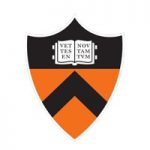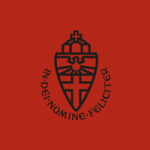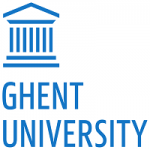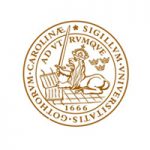项目介绍
COURSES:
The graduate program in English is a five-year program (with multiple opportunities for funding in year six, as necessary) leading to the Doctor of Philosophy (Ph.D.). During the first two years, students prepare for the general examination through work in seminars and directed or independent reading.
Each entering student is assigned a faculty adviser who works with the director of graduate studies in planning course selection in the first and second years.
The major work of the first two years should reinforce the student’s general knowledge of English and American literature. During the second year, students also begin intensive work in their special fields of interest, which may include a historical period, a genre, or literary theory and criticism. Students choose their courses at the beginning of each term with the aid of the departmental director of graduate studies. While programs are flexible, students normally enroll in three seminars each term to complete the required 12 courses by the end of the second year.
Our distribution requirements are designed to provide each student with familiarity across a diverse range of historical periods as well a broad spectrum of thematic and/or methodological concerns. The department values both traditional historical fields as well as non-historical ways of conceiving literary criticism, and assumes that the study of literature includes the study of film, visual culture, and media studies. Our distribution requirements reflect an emphasis on traditional and non-traditional ways of conceiving fields.
Of the 12 required courses, students must take six courses from the following eight areas, with four courses drawn from 1-5, and two drawn from 6-8:
1. Medieval
2. Renaissance
3. Restoration and 18th Century (British and/or American)
4. 19th Century (British and/or American)
5. Modern & Contemporary (British and/or American)
6. Criticism and Theory
7. Race, Ethnicity, and Postcoloniality
8. Gender and Sexuality
All distribution requirements must be taken for a letter grade. The six-course distribution requirement comprises 50% of the courses required for the degree, leaving sufficient room for additional intensive coursework in a student’s area of specialization.LANGUAGE(S):
Students must demonstrate a reading knowledge of two foreign languages as soon as possible after enrollment. The languages normally recommended are French, German, Greek, Italian, Latin, and Spanish, but other languages relevant to a student’s program of research may be substituted with the approval of the director of graduate studies. The language requirement must be satisfied before the completion of the general examination.GENERAL EXAM:
The general examination, taken in October of the third year, is the main qualifying examination for the Ph.D. The purpose of this examination is to prepare students to present themselves as strong job candidates with wide-ranging knowledge of two or more fields. The examination committee consists of three faculty members, who assist the student in preparing a reading list for the examination. Students elect to be examined either on two major fields, or one major and two minor fields. They also decide, in consultation with their examination committee, which examination format is most appropriate for them: an eight-hour written examination, or a two- hour oral examination.QUALIFYING FOR THE M.A.:
Students normally qualify for the Master of Arts (M.A.) degree on the way to the Ph.D. by completing thegeneral examination. Students who leave the Ph.D. program for various reasons may also be awarded the M.A. by satisfactorily completing all required course work, the course distribution requirement, and the language requirement.TEACHING:
All graduate students who have passed the general examination are required to teach in undergraduate courses as part of their preparation. While the minimum department requirement is four hours, moststudents teach more than this. The department offers many opportunities for teaching experience inconjunction with its large and popular undergraduate program. Students may teach in the writingprogram, conduct sections of large lecture courses, or direct precepts in upper-division courses. This teaching is supervised by experienced members of the faculty. Additionally, several collaborative teaching opportunities with department faculty are available each year. Thedepartment and University also offer, on an annual basis, teacher training seminars.POST-GENERALS REQUIREMENT(S):
The third, fourth, and fifth years are devoted to teaching in undergraduate courses and to the writing of the dissertation. Through numerous funding opportunities, we are able to offer sixth- year students who require it generous support with time off from teaching to complete their dissertation and go on the academic job market or pursue another career trajectory of their choosing. Students are strongly encouraged to continue taking courses in years three through five, both in the English department and in related departments such as comparative literature. After completing the general examination, all students participate in a dissertation seminar led by a faculty member in which they write a dissertation proposal. This dissertation proposal becomes the basis of a one-hour oral examination, after which students continue to work on the dissertation with the guidance of their faculty advisers. Upon successful submission of the dissertation proposal but no later than the beginning of the fourth year, each student chooses three department faculty members who will serve as their dissertation advisors.DISSERTATION AND FPO:
A final public oral examination is given after each candidate’s dissertation has been read and approved by their dissertation faculty advisors. The examination has two parts. The first consists of a 30-minute lecture on the dissertation to cover the following topics: a justification of the subject treated; an account of possible methods of treating the subject and a justification of the method chosen; an account of any new contributions made; and a consideration of the possibility of future studies of the same kind, including an account of plans for future scholarship and publication. During the second part of the examination, the student answers a series of questions growing out of subjects presented in their lecture and sometimes relating to the teaching of literary material dealt with in the dissertation.
联系方式
电话: 609-258-3000相关项目推荐
KD博士实时收录全球顶尖院校的博士项目,总有一个项目等着你!






